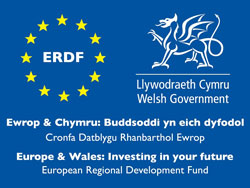A new study from the SMARTAQUA team offers 16 practical solutions for improving the welfare of lumpfish and illustrates the merits of the Delphi approach for achieving consensus among stakeholders on welfare needs, targeting research where is most needed and generating workable solutions. The study was
Read more →In this publication, the authors describe how they adapted the use of laparoscopy (keyhole surgery) to obtain kidney and gonad biopsies from male lumpfish. This has allowed advanced health assessment, direct visualisation of reproductive status, and PCR screening for selected pathogens to pre-assess their suitability as broodstock.
Read more →The Centre for Sustainable Aquatic Research (CSAR) pioneered lumpfish farming in the UK. CSAR is the only facility in the UK involved in the collection of lumpfish broodstock to harvest fresh milt and eggs for incubation. Our research has produced nine Standard Operating Procedures (SOP).
Read more →Dr Tamsyn Uren Webster and co-authors have recently developed a novel qPCR assay to detect and quantify Nucleospora cyclopteri in lumpfish. This novel assay identified high prevalence of the infection among asymptomatic fish. All analyzed tissues were affected, including blood, suggesting systemic infection. Asymptomatic lumpfish had
Read more →Lumpfish (Cyclopterus lumpus L.) are widely used for controlling sea lice in salmon farming, but their welfare is often challenged by poor husbandry, stress, and disease outbreaks, which compromise their ability to delouse salmon and cause public concern. In this new study by Carolina Gutierrez-Rabadan and
Read more →Salmon microbiome is sensitive to environmental factors during early life. For fish farmers this means early rearing condition affect the microbiome development and potentially the health of the fish throughout life. This exciting new study by Dr Tamsyn Uren Webster and co-authors opens an exciting path of future
Read more →Cortisol – a stress related hormone, disrupts the gut microbiome in salmon. This can cause poor fish health – check out our new publicationby Dr Tamsyn Uren Webster and co-authors. This paper also highlights the value of using non-invasive faecal samples to monitor stress, and simultaneous
Read more →This new study identifies two genes in Nile tilapia related to the expression of stress in crowded environments: sstl and fosab. This is good news for breeders as it might be possible to selectively breed fish that perform better under crowded conditions. Figure 1. Experimental set up
Read more →New publication from SMARTAQUA team suggests that stocking farmed tilapia at high densities could be beneficial to their welfare and make them less invasive should they escape. The study was published in the Royal Society Open Science in early December and looks into how crowding in Nile
Read more →New publication from SMARTAQUA team suggests that some lumpfish populations are very small and have low genetic diversity, which makes them particularly vulnerable to over-exploitation and genetic introgression. The results, published this week, as Genetic and phenotypic differentiation of lumpfish (Cyclopterus lumpus) across the North Atlantic: implications for conservation
Read more →





